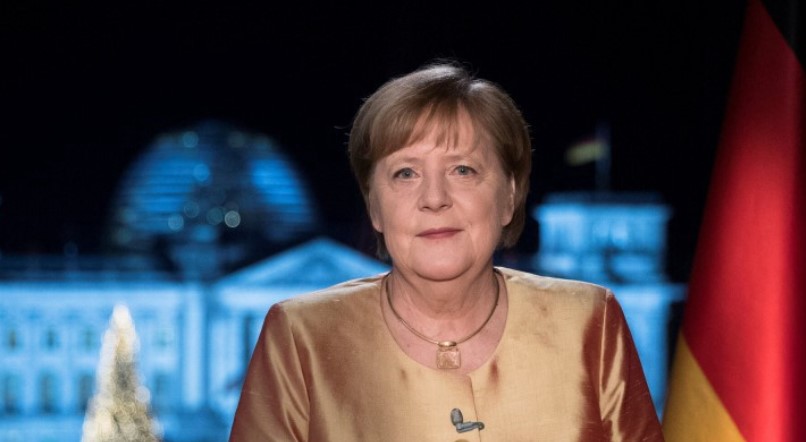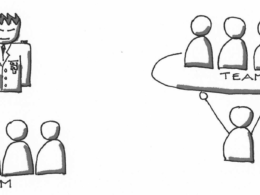Linkedin
Natalia M. Monteiro, MBA
Empowering data-driven decision making
Published on January 27, 2021
The year 2020 will probably go down as the most challenging in modern history. From financial upheaval to the global pandemic, leaders around the globe have either stood up to meet these challenges or fallen short with huge consequences. Considering these challenges, I have updated an article focusing on the European refugee crisis of 2016 to today’s pandemic. Specifically, the role of Angela Merkel who stood out as a global leader.
It has been a year since the world became aware of the deadly virus. We were wholly unprepared as a global society to tackle the crisis. Patrick Wintour of The Guardian writes, “World leaders, diplomats and geopolitical analysts know they are living through epoch-making times and have one eye on the daily combat, the other on what this crisis will bequeath the world.”
The world wants to return to normal. The truth is, the world has been transformed by these events. Maybe normal was the problem with massive issues in healthcare, wealth inequality, and trust in democratic governments have led to preventable deaths in many of the world’s populations.
Let’s look at this through the lens of Angela Merkel while applying Servant leadership theories.
Who is Angela Merkel?
In their annual World’s Most Powerful Women of 2013, Forbes wrote of Chancellor Angela Merkel, “Probably the world’s most powerful woman and most likely the informal leader of the European Union.” Merkel’s many talents and success include being; a scientist, physical chemist, and earned a doctorate with a thesis on quantum chemistry. She worked as a researcher and entered the government of East Germany before the reunification. Merkel was elected to the Bundestag in 1990 and in 2007, she became President of the European Council and chaired the G8.
Angela Merkel is the first woman to serve as Chancellor of Germany and the first Eastern German to lead the reunified Germany. Featured in the top 100 most powerful women of the Forbes magazine 15 times, in her last year as Chancellor, she takes the top position of Power Woman for 2020. Her ability to be reserved and steadfast in crisis as exemplified in taking in Syrian refugees in 2016 to standing up to Donald Trump has earned her the trust of not only Germany, but for Europe as a whole.
In 2015 Time magazine named Merkel Person of the Year, with the magazine’s cover declaring her to be the “ Chancellor of the Free World.” Following the election of Donald Trump to the U.S. presidency in November 2016, Merkel was described by The New York Times as “the Liberal West’s Last Defender.”
One of her most symbolic gestures is “The Merkel Diamond.” When she sits in thought, Merkel puts her fingertips together to form a diamond shape-which has become a symbol of stability and thoughtful power.
Leadership role in this time of crisis for Germany and the EU
“We can do it”: the famous phrase (originally: Wir Schaffen Das!) from Angela Merkel became the phrase to define the refugee crisis.
Now, amid the pandemic, her new rallying cry is that German citizens will emerge “stronger and more resilient” as they have in previous crises under her leadership.
Things are different this time. Merkel has admitted that the current threat was more serious than any of the crises she has faced since taking power in 2005, including the global recession, the EU debt crisis, and the mass arrival of refugees in 2015 which was her defining moment as a leader. She described the pandemic as a “once-in-a-century” event.
Revered as Germany’s Mutti (or mummy), the solemn, calm demeanor struck a chord when the country shut down schools and shops and sealed its borders in an attempt to slow the advance of coronavirus. Millions were stuck at home while alarm and a sense of loss blanketed the streets.
She called on all Germains to show solidarity by maintaining social distancing, curtailing social outings, and staying away from the elderly. She even referenced her life in communist East Germany stating “For someone like me, for whom freedom of movement was a hard-fought right, such restrictions can only be justified by their absolute necessity.”
Her rare TV appearance coupled with empathy and emotion drew trust in her leadership during one of the most terrifying times in modern history.
Her biographer Stefan Kornelius, stated “You want someone like her who projects stability and maturity. Someone who isn’t tweeting every five minutes.” She showed that she is the one you want in your corner in a pandemic, with the economy spiraling downward, and millions scared.
… “You want someone like her who projects stability and maturity. Someone who isn’t tweeting every five minutes.”
According to a Gallup poll taken in December 2020 across 29 countries as the Chancellor is readying to leave office, a median of 62% approves of Germany’s leadership, up slightly from a median of 59% for this same group in 2019. Approval ratings are at, or top, previous record highs in 18 of the 29 countries.
Among Germans, Merkel’s popularity has fluctuated in her 15 years in office ranging from above 50 percent to 86 percent with the most recent survey in September 2020 showing 82 percent approval of the Chancellor’s job during the pandemic crisis.
What is Servant Leadership?
Robert K. Greenleaf created the term Servant Leadership in 1970. In his works, Greenleaf states that a great leader is a servant to others-including employees, customers, and community and is central to his or her greatness.
Angela Merkel and the Servant Leadership Model
So, how does Angela Merkel’s leadership style incorporate servant leadership theories during a time of crisis?
Below are six of the ten main principles of the servant leader and how Chancellor Merkel exhibits these traits.
Leaders of governments are seen as servants of the population, but not all who hold leading positions exhibit this quality.
Most servant leaders reside in social work or religious services, although more and more of these traits are being recognized as important leadership styles in corporations and government.
Leaders of governments are seen as servants of the population, but not all who hold leading positions exhibit this quality.
We can describe a servant leader as an individual who:
- Listens: The servant-leader seeks to identify the will of a group and helps to clarify that will. While science experts struggled with their leaders hit by the pandemic, the US being one of the most prominent, Merkel listened to hers telling the German public, “We will align our decisions with recommendations from experts.”
- Shows Empathy: The most successful leaders are empathetic and have concern for the poor and marginalized. During her speech in December 2020, Merkel appealed to the emotions of her country’s citizens. Her words, full of sentiment, indicated that any reaction to this deadly virus isn’t an overreaction.
- Distributes Equity: The servant-leader transfers as much authority as possible to others, enabling them to make their own decisions in as many areas as is possible. As in the example above, Merkel effectively handed the lead over to Germany’s top scientists while also being forthright with the public, asking them to take their responsibility in the crisis.
- Demonstrates Stewardship: Servant-leadership, like stewardship, assumes a commitment to serving the needs of others. It also emphasizes the use of openness and persuasion rather than control. Christine Lagarde, president of the IMF, wrote of Angela Merkel’s leadership, “For her, human dignity is a matter of the heart-and so are the big questions that come with it. How can we address the causes of displacement and forced migration? How can we ensure that digital transformations benefit all people? How can we fight the existential threat of climate change?”
- Is Persuasive: Rather than using one’s authority or coercion, lead through influence and persuasion. “I seek cooperation rather than confrontation.” From climate change and migration issues to the pandemic, Angela Merkel understands the multilateral system. The Chancellor knows that the system has helped people become healthier, wealthier, and better educated. But she is also aware of its limitations, as not everyone has benefited from the current system.
- Shows Awareness: No individual ever has total authority over another. That is by definition a form of dictatorship, even if the “leader” who thinks he/she has such authority has good intent. Uri Savir of the Jerusalem Post posits that perhaps the dark age of Germany and the Holocaust has served as a basis for a new liberal Germany, based on the respect of human rights. Germany has been coming to terms with its horrendous past by developing a liberal, non-xenophobic society. Because of her focus on integration, economic disparity has shrunk between the various parts of Germany.
Chancellor Merkel has become a positive force for the European Union, with her servant leadership style.
She sacrifices some of her immediate diplomatic gains whenever necessary to defend the common good of the union.
She also dared to ask Europe some of its most challenging questions; what kind of continent it wanted to be?
- Does it choose to be a continent where human dignity and upholding the rights of minorities,
- or does Europe want to live in a world where nationalism and intolerance prevail?
As the extreme right gains power and Brexit, Europe is at risk of shrinking back into narrow and nationalistic ways. Through these challenges, Merkel has brought a stable and grounded presence in the face of change, stress, or troublesome times.
Chancellor Angela Merkel acted like any other Head of State should have in a time of crisis. Her servant leadership skills allowed her to lead not only Germany but also the European community.
While looking for the best innovative solutions to many of the problems she faced during her tenure, Merkel has also influenced how the world perceives Germany; as active in human rights, the environmental debate, and the coronavirus crisis.
Originally published at https://www.linkedin.com.
Names cited:
Stefan Kornelius, biobrapher












